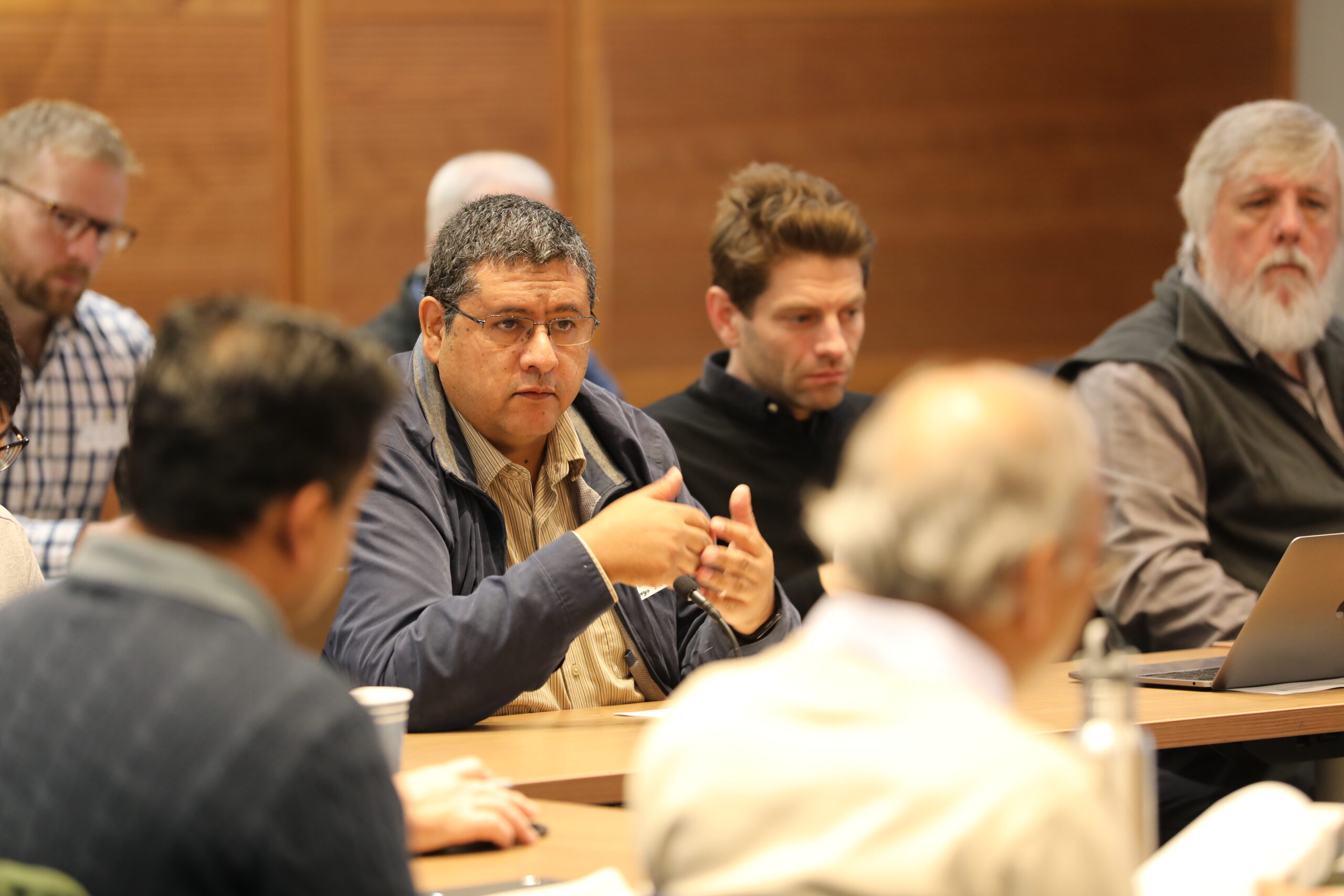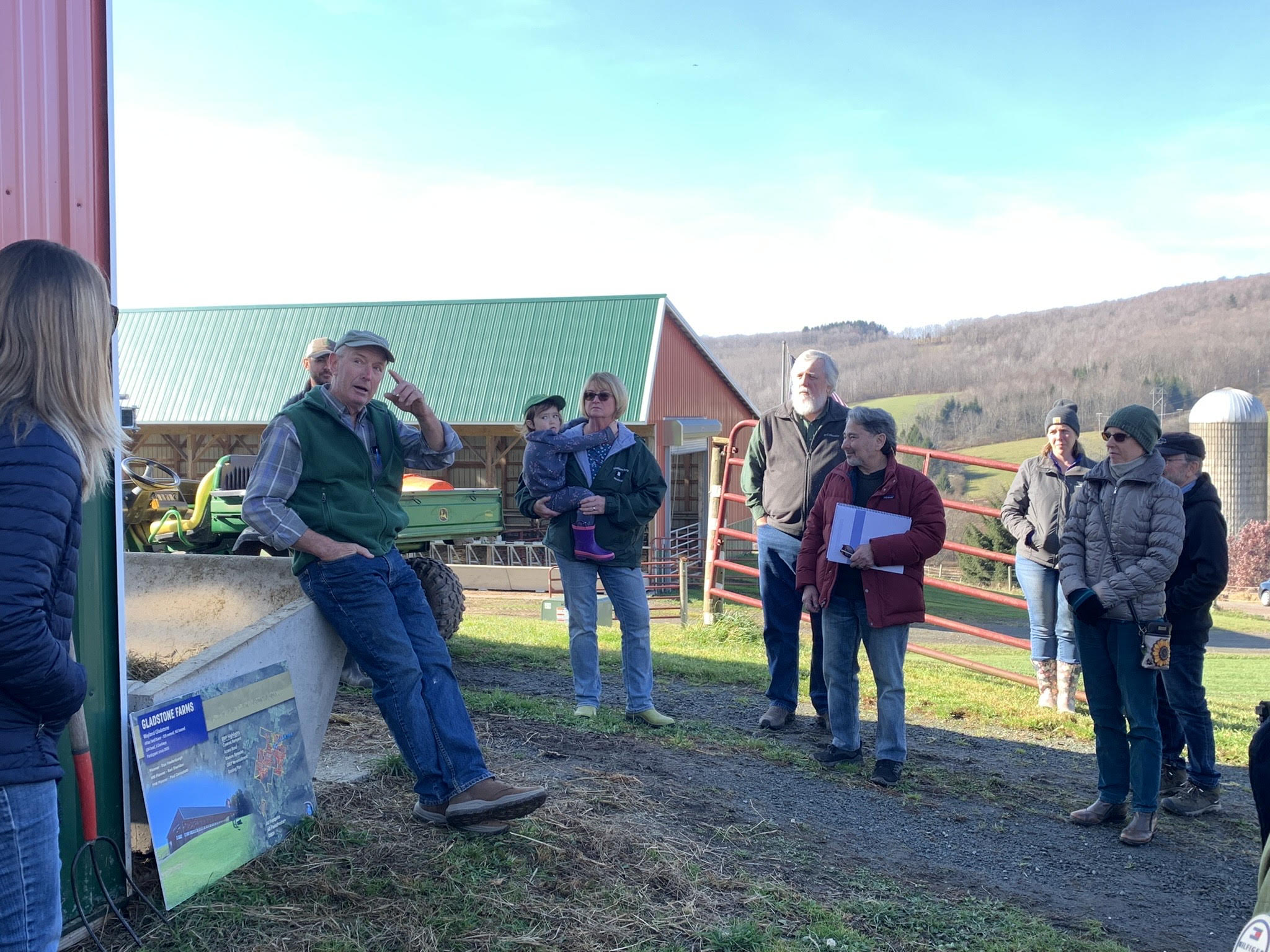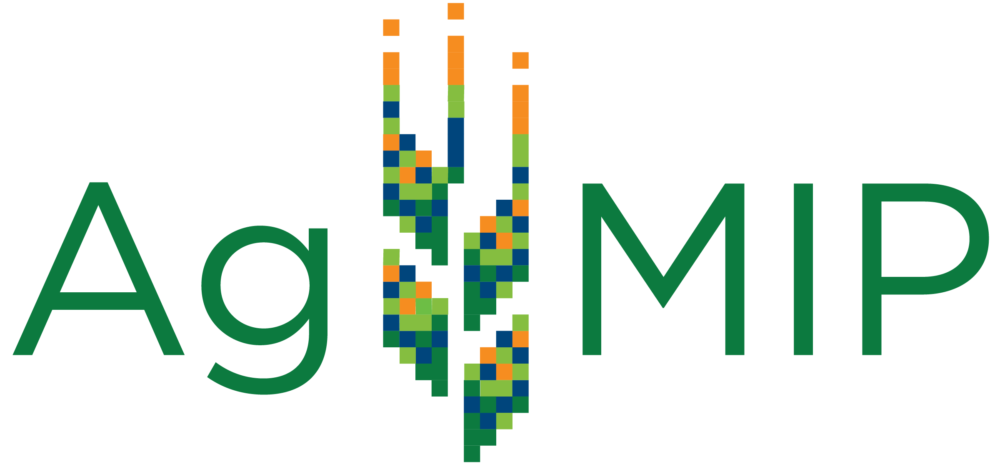Addressing Climate Challenges to Agriculture and Water Quality in the NYC Watershed – Project Launch Workshop Recap
By Natalie Kozlowski
Addressing Climate Challenges to Agriculture and Water Quality in the NYC Watershed, a project aimed at assisting climate adaptation planning for the NYC Watershed Agricultural Program, was announced in January 2023 and is funded through the USDA Natural Resources Conservation Service (NRCS). This project is a partnership among the Agricultural Model Intercomparison and Improvement Project (AgMIP), the Watershed Agricultural Council (WAC), and the New York City Department of Environmental Protection (NYC DEP).
Beyond creating a climate action plan, the partner organizations will establish an ensemble of agriculture and climate models to better understand how agricultural production in the NYC Watershed currently operates and how it will be impacted by climate change in the coming years. More specifically, these models will be used to help prioritize how and where best management practices (BMPs) should be implemented on agricultural land as well as examine the economic viability of these BMPs.
A workshop for the official launch of the project took place November 15-16, 2023 at the Catskill Watershed Corporation in Arkville, New York. Workshop participants came from a number of institutions and backgrounds, including Columbia University, NASA Goddard Institute for Space Studies, WAC, NYC DEP, Colorado State University, Cornell University, Cornell Cooperative Extension, Oregon State University, and University of Florida. A number of local farmers participated in the workshop for a portion of the day and will be important collaborators throughout the duration of the project as the group works to sustain water quality and economic development of the NYC Watershed.
The workshop objectives were as follows:
- Inform all stakeholder groups about scope and goals of the project
- Gather input from key stakeholder groups
- Co-produce directions for the work ahead – E.g., identify examples of questions the models could address for farmers
- Develop procedures for communications and resource exchange across partnering institutions
- Share and discuss institutional perspectives on scope of work so that the project is additive to goals and objectives of all partners

Dr. Roberto Valdivia, AgMIP/Oregon State University
Photo Credit: NYC DEP

Farm tours took place in the Catskill and Delaware Watersheds
Photo Credit: Natalie Kozlowski
The second day of the workshop included tours at two farms in the Catskill and Delaware Watersheds. Through the generosity and time of these farm owners and the logistical planning of WAC staff members, AgMIP researchers were able to witness implemented BMPs and better understand how these practices are used to both increase the efficiency of farm operations as well as protect water quality and soil health. These first-hand observations will directly influence how the project’s modeling efforts will be formulated. Further, this will help ensure that the models developed both accurately reflect real-life farm operations and biophysical processes, as well as address the concerns of farmers and provide them with additional knowledge that will support them in future endeavors.
A full workshop report with a detailed overview of each workshop session and presentation will be available in the coming months.
Additional Resources
Watershed Agricultural Council website: www.nycwatershed.org/
NYC Department of Environmental Protection website: www.nyc.gov/site/dep/index.page
Project press release: news.columbia.edu/news/columbia-announces-funding-climate-action-plan-ensure-new-york-city-water-quality
